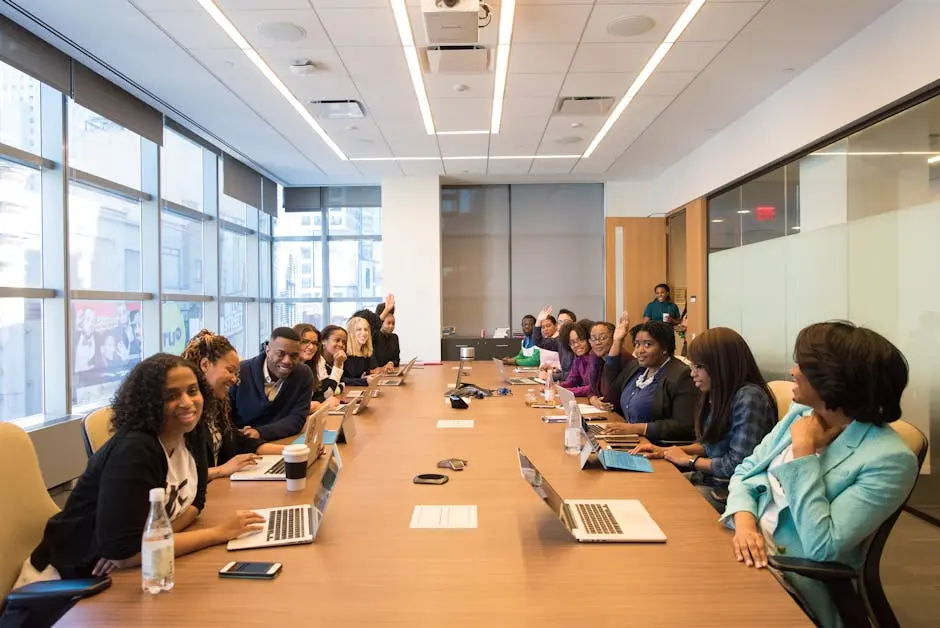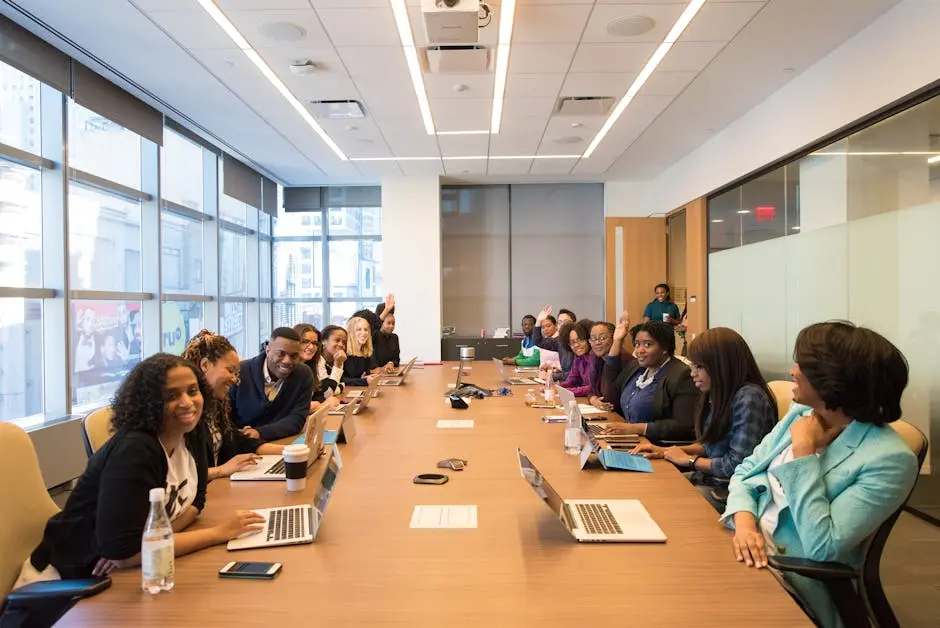In today’s competitive job market, having a unique skill set can be a game-changer. A conflict resolution certification is one such credential that can not only enhance your resume but also arm you with essential skills to handle disputes effectively in the workplace. Whether you’re aiming for a promotion, seeking new opportunities, or simply improving your current role, this certification can be your stepping stone to success. Let’s explore the steps to leveraging this powerful tool for your career growth.
1. Understanding the Importance of Conflict Resolution
Conflict resolution is a vital skill in any workplace. It helps in mediating disputes, ensuring a peaceful work environment, and improving team dynamics. Recognizing its significance is the first step in your journey.
In today’s fast-paced work environments, conflicts are inevitable. Understanding the importance of conflict resolution is essential because it not only fosters a positive atmosphere but also promotes healthy communication. With successful conflict management, companies can see increased productivity, innovation, and employee satisfaction. When disputes are resolved efficiently, team members can collaborate better, leading to a more cohesive work culture.
Conflict resolution also plays a pivotal role in leadership. Effective leaders often cite conflict management as one of their most important skills. By honing your abilities in this area, you position yourself as someone who can handle challenging situations with tact and diplomacy, traits that are highly valued in positions of authority.
2. Identifying the Right Certification for You
Not all certifications are created equal. Research different conflict resolution programs to find the one that best aligns with your career goals and industry requirements.
When selecting a certification program, consider its components and focus areas. Some programs are tailored for specific industries, like healthcare or education, while others provide a broader understanding suitable for various fields. Investigate the curriculum, faculty expertise, and accreditation status to ensure the program’s credibility. Evaluating these factors will help you make an informed decision about your education and career path.
Additionally, look for certifications that offer flexibility in learning formats, whether online, in-person, or hybrid options. This flexibility allows you to balance your studies with existing professional commitments, making it feasible to enhance your skills without sacrificing current job responsibilities.
3. Enrolling in a Comprehensive Program
Choose a program that offers comprehensive training, covering various aspects of conflict resolution. Look for courses that provide hands-on experience and real-world scenarios.
A comprehensive certification program should encompass various essential topics such as negotiation techniques, mediation processes, and emotional intelligence in conflict scenarios. Hands-on experience is crucial, as it bridges the gap between theoretical knowledge and practical application. Consider programs that incorporate role-playing exercises and case studies, allowing you to practice conflict resolution in a controlled environment that mimics real-life situations.
4. Learning Key Conflict Resolution Techniques
Dive into the techniques taught during your certification. Understanding these methods will equip you with practical skills for managing disputes effectively.
Some of the key techniques in conflict resolution include active listening, empathy, and the art of compromise. Active listening ensures all parties feel heard and understood, which can defuse tension right at the onset. Empathy helps in acknowledging the emotions involved, paving the way for more heartfelt resolutions. By mastering these skills, you will be better prepared to diffuse conflicts before they escalate.
It’s also essential to grasp the significance of non-verbal communication cues like body language and tone of voice. These subtle factors often provide insights into the underlying issues of a conflict, helping you address the root causes rather than just the symptoms. With the right approach, you can turn potentially negative situations into opportunities for growth and understanding.
5. Practicing Regularly to Enhance Your Skills
Practice is essential to mastering any skill. Engage in role-playing and real-life conflict scenarios to apply your knowledge and improve your decision-making abilities.
Regular practice solidifies your understanding and enhances your ability to apply conflict resolution techniques under pressure. Seek opportunities to observe or participate in mediation sessions within your organization. Volunteering for community mediation centers is another excellent way to gain practical experience while contributing positively to your community. Practice not only enhances skill but boosts your confidence, making you more effective in real-world situations.
6. Networking with Fellow Professionals
Connect with peers and professionals who have also pursued conflict resolution. Networking can open up discussions, provide support, and lead to new opportunities.
In the world of conflict resolution, networking is indispensable. Join professional organizations such as the Association for Conflict Resolution, where you can meet like-minded individuals and stay updated on industry trends. Engage in online forums and social media groups where members share insights, challenges, and successes. These platforms are invaluable resources for strengthening your professional network, learning about job openings, and even finding mentorship opportunities from seasoned professionals.
7. Incorporating Conflict Resolution into Your Job
Start applying your conflict resolution skills in your current role. Demonstrating your new abilities in the workplace can showcase your commitment to personal and professional growth.
Begin by identifying areas within your team or department where conflicts frequently arise, then work to develop strategies to address these issues. By proactively using your skills, you can help foster a more productive and harmonious workplace. Additionally, offering to mediate disputes between colleagues can illustrate your initiative and leadership capabilities, thereby enhancing your professional reputation and potentially leading to career advancement opportunities.
8. Showcasing Your Certification on Your Resume
Update your resume to include your conflict resolution certification. Highlight your improved abilities and how they contribute to your professional profile.
When reworking your resume, ensure that your conflict resolution certification is prominently displayed in the education section. Provide a brief description of the skills you have acquired and how they are applicable to your field. If possible, quantify your achievements and demonstrate the positive impact of your conflict resolution abilities, such as decreased dispute incidence or improved team performance metrics, to provide concrete evidence of your expertise.
9. Seeking Feedback and Continuous Improvement
Always seek feedback on your conflict management attempts. Constructive criticism can help you refine your approach and continue growing.
Feedback is an invaluable tool for professional growth. Encourage your colleagues and supervisors to provide insights into your handling of conflicts. Constructive criticism offers fresh perspectives and sheds light on areas for improvement. At the same time, self-reflection is crucial: consider maintaining a journal of your experiences, noting what strategies worked, what didn’t, and why. This practice will help you tailor your techniques to different situations over time.
10. Exploring Career Opportunities with Your New Skills
With your enhanced skill set, look for new career opportunities where conflict resolution can be a valuable asset. Whether it’s a promotion or a new job, your certification opens doors to growth.
Use online job portals and professional networks to explore roles that require strong conflict resolution skills. Positions in human resources, management, and even specialized mediator roles may become more accessible with your certification. Additionally, consider the benefits of entrepreneurship; your certification can empower you to start a consultancy, offering conflict resolution services to businesses looking to improve their workplace environments through expert mediation and negotiation tactics.


